Revolution and Colonies
Articles on the Founding Fathers, and the culture and history of the Revolutionary and pre-Revolutionary eras
Articles on the Founding Fathers, and the culture and history of the Revolutionary and pre-Revolutionary eras
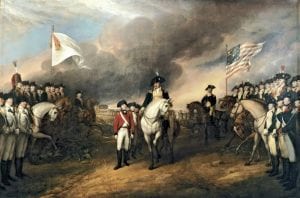
Was it a radical or conservative American Revolution? More specifically, how do we understand the political nature of 1776? When most people think of the causes that led to the American War for Independence, they think of the phrase “no taxation without representation.” This principle played a role, but it was…
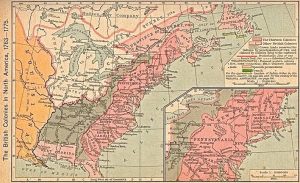
The 13 British Colonies in America or American colonies or thirteen colonies or colonial America, that were established during the 17th and early 18th centuries in what is now a part of the eastern United States. The robust and zealous nature of community life in Puritan New England and its habit of self-rule were dramatically…
The Pequot War significance in history was that it tipped the balance of military power to the English, instead of the Dutch, opening the way to New England's settlement by the British in the New World. Pequot War Significance Each colony negotiated with the Indians, who were all too happy to sell…
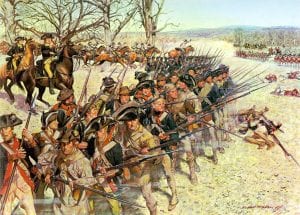
Dozens of skirmishes were fought in South Carolina during the Revolutionary War. It became a site of increased fighting a few years into the battle. The British strategy was to mobilize loyalist Carolinians, who made up fifty percent of the colony's population. General Henry Clinton's strategy was to march troops…
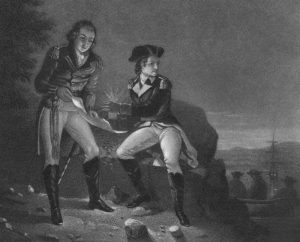
Benedict Arnold (January 14, 1741 [O.S. January 3, 1740 – June 14, 1801) was an American military officer who served as a general during the American Revolutionary War, fighting for the American Continental Army before defecting to the British in 1780. George Washington had given him his fullest trust and…

Charles Cornwallis (1738–1805) was a military officer who served in the British Army during the American War of Independence. He is best known for surrendering his army after the 1781 Siege of Yorktown, an act that ended major hostilities in North America and led directly to peace negotiations and the…
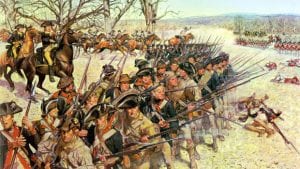
Cowpens Battle was an engagement during the American Revolutionary War fought on January 17, 1781, between American Colonial forces under Brigadier General Daniel Morgan and British forces under Lieutenant Colonel Sir Banastre Tarleton, as part of the campaign in the Carolinas. Cowpens Battle Daniel Morgan, who had been sent south…
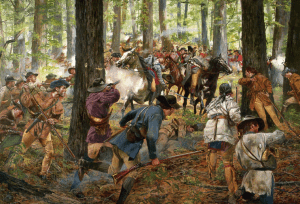
King’s Mountain was a military engagement between Patriot and Loyalist militias in South Carolina during the Southern Campaign of the American Revolutionary War, resulting in a decisive victory for the Patriots. King’s Mountain Cornwallis sent Major Patrick Ferguson (“The Bulldog”) into western North Carolina to recruit Loyalist soldiers and to…
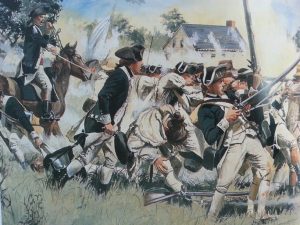
The Battle of Rhode Island (also known as the Battle of Quaker Hill and the Battle of Newport) took place on August 29, 1778. The battle was the first attempt at cooperation between French and American forces following France's entry into the war as an American ally. Battle of Rhode Island Background Newport: fourth-largest city in the…
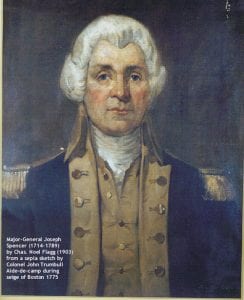
Spencer’s Expedition was a military action in which 9,000 soldiers from the Continental Army fought the British at Newport. On October 26, 1777 the attempted a forward movement, but the weather and failure of one brigade to report in time caused miscarriage of the plan. Jonathan Trumbull, in a letter…














